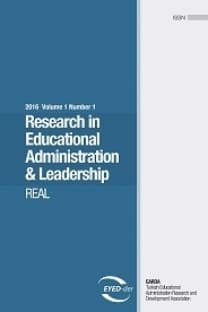Decision-Making Processes Using WhatsApp
___
- Aburezeq, M. I., & Ishtaiwa, F. F. (2013). The impact of whatsapp on interaction in an arabic language teaching course. International Journal of Arts & Sciences, 165–180. Alazemi. (2017). Exploring Factors That Predict Kuwaiti Preservice Kindergarten Teachers' Intentions to Use Web 2.0 Technologies in Their Future Kindergarten Classrooms Using the Decomposed Theory of Planned Behavior. Birmingham: Doctoral dissertation, The University of Alabama at Birmingham. Alazemi, L. A. (2017). Exploring Factors That Predict Kuwaiti Preservice Kindergarten Teachers' Intentions to Use Web 2.0 Technologies in Their Future Kindergarten Classrooms Using the Decomposed Theory of Planned Behavior. The University of Alabama at Birmingham: Doctoral dissertation. Allagui, B. (2014). Writing through WhatsApp: an evaluation of students writing performance. nternational Journal of Mobile Learning and Organisation, 3(4), 216-231. Andone, D., Dron, J., & Pemberton, L. (2009). Developing a desirable learning environment for digital students. Cognition and Learning (TICL), 6(4), 253-271. Anglano, C. (2014). Forensic analysis of WhatsApp Messenger on Android smartphones. Digital Investigation, 11(3), 201-213.
- Yayın Aralığı: Yılda 4 Sayı
- Yayıncı: Dokuz Eylül Üniversitesi
Emma GHOSN, Rima Karami AKKARY
Paulo VOLANTE, Rolando JELDRES, Ken SPERO, Claudia LLORENTE, Michael C. JOHANEK
Tijen TÜLÜBAŞ, Şöheyda GÖKTÜRK
Pamela S. ANGELLE, David J. LOMASCOLO
Emanuel TAMİR, Ran ETGAR, Daniel PELED
İsmail ÇİMEN, Ali Çağatay KILINÇ, Fatih BEKTAŞ, Engin KARADAĞ, Mikail YALÇIN
